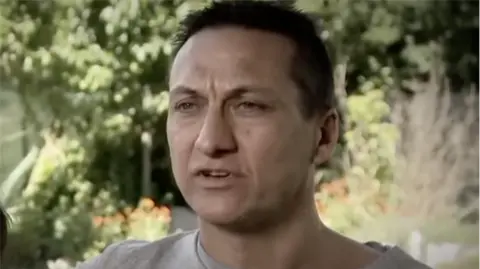Australia could use a range of technologies to implement its social media ban for under-16s, but all have risks or shortcomings, a report has found. The government says its ban, which comes into effect in December, is designed to limit the harmful impacts of social media. The policy has been touted as a world-first and is being watched closely by leaders globally.
Under the new laws, platforms must take reasonable steps to prevent Australian children from creating accounts on their sites, and deactivate existing ones. Though the move is popular with many parents, experts have raised concerns over data privacy and the accuracy of age verification technology.
The federal government commissioned the UK-based Age Check Certification Scheme to test the ways Australia could enforce the ban, and its final report was published on Sunday. It looked at various methods - including formal verification using government documents, parental approval, or technologies to determine age based on facial structure, gestures, or behaviors - and found all were technically possible.
However, no single solution was found to suit all use cases, nor were any guaranteed to be effective in all scenarios. Verification using identity documents was deemed the most accurate method, but concerns were raised that platforms may retain this data longer than necessary and may share it with regulators, exposing user privacy to risks.
The report noted that Australia has experienced several high-profile data breaches, where sensitive information was compromised. Facial assessment technology showed 92% accuracy for individuals aged 18 or over, but within a buffer zone of two to three years around the age of 16, accuracy drops, leading to potential misidentification of users.
Concerns extend to parental approval methods, with the report recommending a combined approach for the most effective system and pointing out that many tech providers are working on counteractions against circumvention.
Communications Minister Anika Wells stated that there is no one-size-fits-all solution, asserting the importance of robust age verification methods. Under the ban, tech companies can be fined up to A$50m ($32.5m) if they fail to take adequate steps to prevent under-16s from having accounts.
Polling indicates strong adult support for the ban, yet mental health advocates warn of the potential negative effects on children's social connections and suggest the government focus on policing harmful content rather than blanket bans.
Under the new laws, platforms must take reasonable steps to prevent Australian children from creating accounts on their sites, and deactivate existing ones. Though the move is popular with many parents, experts have raised concerns over data privacy and the accuracy of age verification technology.
The federal government commissioned the UK-based Age Check Certification Scheme to test the ways Australia could enforce the ban, and its final report was published on Sunday. It looked at various methods - including formal verification using government documents, parental approval, or technologies to determine age based on facial structure, gestures, or behaviors - and found all were technically possible.
However, no single solution was found to suit all use cases, nor were any guaranteed to be effective in all scenarios. Verification using identity documents was deemed the most accurate method, but concerns were raised that platforms may retain this data longer than necessary and may share it with regulators, exposing user privacy to risks.
The report noted that Australia has experienced several high-profile data breaches, where sensitive information was compromised. Facial assessment technology showed 92% accuracy for individuals aged 18 or over, but within a buffer zone of two to three years around the age of 16, accuracy drops, leading to potential misidentification of users.
Concerns extend to parental approval methods, with the report recommending a combined approach for the most effective system and pointing out that many tech providers are working on counteractions against circumvention.
Communications Minister Anika Wells stated that there is no one-size-fits-all solution, asserting the importance of robust age verification methods. Under the ban, tech companies can be fined up to A$50m ($32.5m) if they fail to take adequate steps to prevent under-16s from having accounts.
Polling indicates strong adult support for the ban, yet mental health advocates warn of the potential negative effects on children's social connections and suggest the government focus on policing harmful content rather than blanket bans.


















